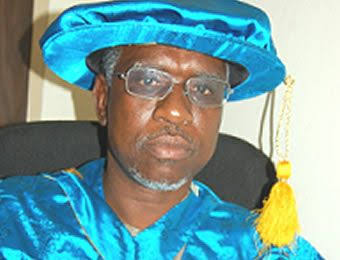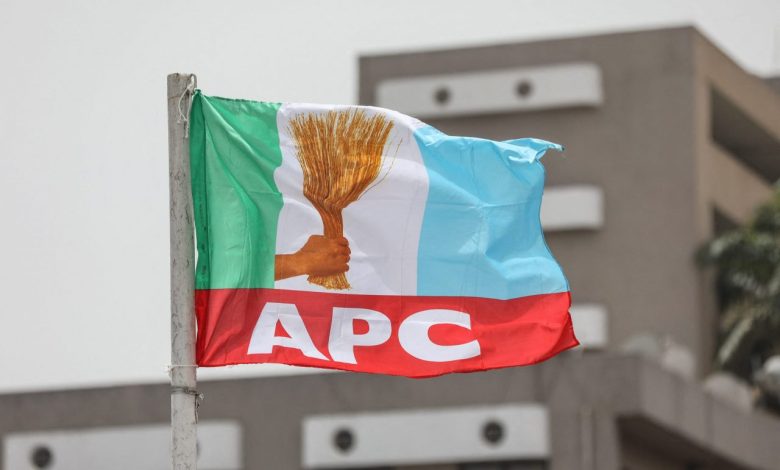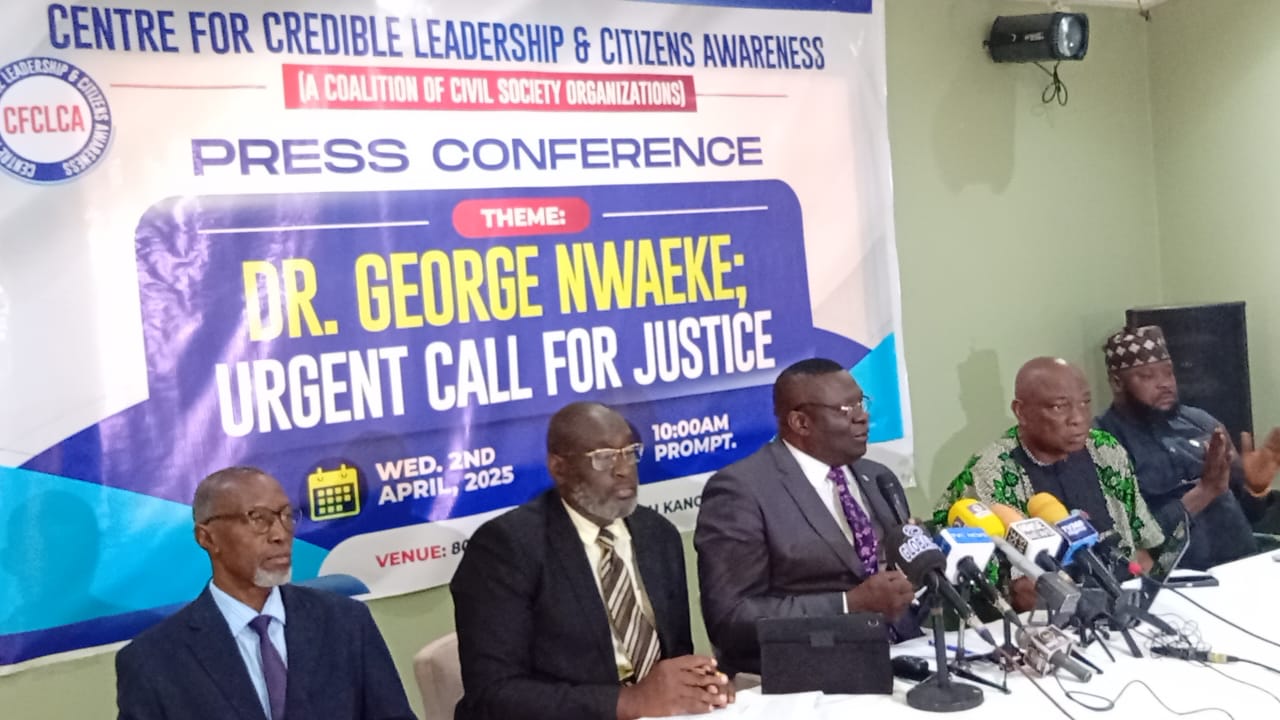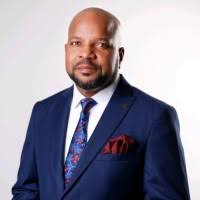News
Experts advocate true University autonomy to tackle challenges of higher education in Africa

Experts in the education sector have called for true University autonomy as one of the solutions to tackle the challenges facing higher education in Africa.

This was at an international symposium convened to mark the birthday of Professor Abubakar Adamu Rasheed, the Executive Secretary of the National Universities Commission (NUC) on Wednesday.

They agreed that African higher education is confronted with a host of grand challenges that must be tackled to ensure the attainment of the Sustainable Development Goals (SDGs) and the African Union Agenda 2063.
Over 160 higher education experts from 14 countries attended the virtual event organized by the Okebukola Science Foundation in partnership with NUC Strategy Advisory Committee (STRADVCOM), the Africa Progress Group (APG), the Office of the AAU Ambassador for West Africa, National Open University of Nigeria (NOUN) and the Virtual Institute for Capacity Building in Higher Education (VICBHE)
Lead speakers at the symposium on the theme ““Grand Challenges Facing University Education in Africa: Taming the Dragon: were Professor Peter Okebukola (moderator); Professor Gibril Jaw, Executive Secretary, National Accreditation and Quality Assurance Authority of The Gambia; Professor Juma Shabani, Chairman, National Commission for Higher Education of Burundi; Professor Dr. Youhansen Eid, President, National Authority for Quality Assurance in Education of Egypt; Professor Emeritus Nimi Briggs, Chairman, Committee of Pro-Chancellors of Federal Universities; Professor Elizabeth Sarange Abenga, Director of Pan African University Institute of Governance, Humanities and Social Sciences (PAUGHSS), in Cameroon; Professor Olusola Oyewole, Secretary General, Association of African Universities and an Australian
The special guests of honour were Professor Ruqayyatu Ahmed Rufa’i, former Honourable Minister of Education and Professor Laraba Gambo Abdullahi, former Vice-Chancellor, University of Abuja and former Honourable Minister of Women Affairs.
Twelve grand challenges were agreed as inhibiting quality delivery of university Education in Africa.
These are the absence of true University autonomy; depreciating quality of higher education teachers; research capacity deficit; use of outdated teaching methods and slow adoption of ICT for delivering quality university education; capacity deficit of quality assurance agencies; infrastructural/facilities inadequacies in the midst of massification of higher education institutions; management inefficiencies; poor quality of entrants into higher education from the secondary level; curriculum irrelevance- academic programmes not aligned to labour market needs; weak regional integration and language barriers; absence of an African Credit Transfer Scheme – hindering comparability of certificates and diplomas, mobility; and poor welfare scheme leading to low morale and low motivation of university staff.
Significant attention was paid in the discussions to proffer solutions to these challenges. The speakers and participants agreed that the solutions rest with all stakeholders and not shifting the burden to the government alone. They agreed that parents, students, teachers and other staff in the university, university managers, regulatory agencies, the private sector, the media, development partners, community leaders, religious leaders, political elites and actors, indeed all beneficiaries of the products of the university system have roles to play in taming the dragon of the challenges.
Specifically, the participants called for the granting of true autonomy to Urniversities which is driven by the universities being less dependent on government for funding; strengthening teaching and research capacity of academic staff through the implementation of intensive and sustained training programmes like those offered by VICBHE; improved resourcing of facilities for teaching and research to ensure that African universities shift from being glorified secondary schools to matching their counterparts in the developed world; improving the relevance of the curriculum (curriculum re-engineering) to enable it produce nationally and regionally-relevant and globally competitive graduates; improving the delivery of basic education so that entrants into universities are of better quality; political commitment to regional integration for south-south collaboration; development of an African Credit Transfer Scheme (ACTS); speedy establishment of the Pan African Quality Assurance and Accreditation Agency (PAQAA); and improvement in the welfare of university staff.
There was agreement among participants on the introduction of blended learning to reduce space constraints, strengthening of intra-African collaboration and compulsory teacher training programme for all teachers in higher education.
Participants further stressed that there should be an increase in the sources of financial inflow into universities and that these should include the payment of tuition fees that are adjusted to the course of studies with bursaries and scholarships for indigent students.
Furthermore, they urged that universities should be more proactive in exploring other avenues of securing funds that are open to higher educational institutions – grants, endowments, consultancies, research – and should reduce their over-dependence on government funding.
Additionally, governments should hold universities to account to source for aspects of their funding requirements. Governments should allow university managements and governing councils to be totally responsible for the running of the affairs of universities including hiring and firing of staff and the payment of differential salaries, where necessary, within clearly stipulated government guidelines. Public universities should be allowed to deploy their resources by themselves and as they deem fit to establish facilities for teaching, learning, research and innovation within their areas of interest, competence and specialization.
Lastly, participants were in agreement on the need to tighten the recruitment process, especially for the teaching staff so as to hire only bright and committed staff who should be appropriately remunerated to retain such staff and avoid brain drain.
Professor Abubakar Adamu Rasheed was celebrated at the event for his creativity and inovativeness in triggering the Rasheed Revolution in the Nigerian and African higher education systems.

News
We are vindicated by ex-Rivers HoS revelation – APC

The Rivers State chapter of the All Progressives Congress (APC) has declared that it has been vindicated by recent revelations from the state’s former Head of Service, Dr. George Nwaeke.

The Rivers APC Chairman, Chief Tony Okocha, stated this in a statement he personally signed and made available to journalists on Wednesday.

The former Head of Service, who recently resigned had alleged that the suspended Governor, Siminalayi Fubara, was directly responsible for the political crisis in the state and the bombing of the State House of Assembly.
In response, the Rivers State APC asserted that Nwaeke’s testimony aligns with the party’s long-held position, as frequently stated by Chief Okocha, that the suspended governor was the architect of the state’s political crisis, including masterminding the October 29, 2023, bombing of the State House of Assembly.
Chief Okocha further emphasized that Nwaeke’s account, given his high-ranking position in the state, cannot be dismissed as mere speculation.
He said attempts to discredit the former Head of Service will not deter him from exposing the alleged corruption and misconduct that the APC has repeatedly highlighted.
“What is most interesting to the APC in Rivers State as a responsible political party is that Dr. George Nwaeke’s revelations and testimonies of how suspended Governor Siminalayi Fubara and his squad bombed the Rivers State House of Assembly is an eye witness account.
“Again , it has clearly vindicated the APC in Rivers State as the only visible and viable opposition political party in the State, and has cemented the love for the party in the heart of well meaning Rivers people as the voice of the voiceless, and the hope for a better Rivers State.
“The revelations made by the former Head of Service in Rivers State has further positioned her as a political party with high level of integrity, and the hope of Rivers people for a viable alternative to produce the Governor of Rivers State in 2027.
“The verbal attacks staged against the resigned Head of Service will not deter him from exposing the corruption within Sim Fubara’s administration, which we have consistently highlighted as the opposition party. On this matter, the APC shall function as watchdogs”, the party stated.
Chief Tony Okocha expressed confidence that security agencies would thoroughly investigate the matter.
“The APC in Rivers State strongly believes that the relevant security agencies will be professional enough to get to the root of the matter and make their findings public”, he said.

News
CSOs demand urgent probe into ex-Rivers HoS allegations against Gov. Fubara

A coalition of civil rights organizations, the Centre for Credible Leadership and Citizens Awareness (CCLCA), has called for an immediate and thorough investigation into the allegations leveled against suspended Rivers State Governor, Siminalayi Fubara, by Dr. George Nwaeke, the former Head of Service of the state.

During a press briefing in Abuja on Wednesday, Dr. Gabriel Nwambu, Director General of the CCLCA, urged the Nigerian Police Force (NPF), Department of State Services (DSS), and the Economic and Financial Crimes Commission (EFCC) to take swift action in probing the allegations. He emphasized that if proven true, these claims pose serious risks to governance and democracy.

The coalition, comprising 30 civil society organizations, stands in solidarity with Dr. Nwaeke, who has expressed willingness to provide evidence of alleged corruption and constitutional breaches involving Governor Fubara and his Chief of Staff, Mr. Edison.
“We collectively urge the relevant authorities to act swiftly and transparently. Addressing these allegations is critical to restoring public confidence in governance at both the state and national levels,” Dr. Nwambu stated.
He commended President Ahmed Bola Tinubu for his intervention in Rivers State, which led to the declaration of a state of emergency, a move he described as crucial for stabilizing the region.
Dr. Nwaeke’s accusations against Governor Fubara include:
Arson and Sabotage: Allegedly instructing his Chief of Staff to burn down the Rivers State House of Assembly to prevent impeachment proceedings, a violation of Section 14(2)(b) of the 1999 Constitution.
Corruption and Financial Misconduct: Claims of large sums of money being used for personal and illegal activities, contravening Section 15(5) of the Constitution.
Threats to Public Safety: Alleged plans to sabotage state infrastructure, potentially inciting public disorder, which falls under Section 1 of the Terrorism Prevention Act (2011).
Collusion with Militant Groups: Alleged meetings between the governor, his Chief of Staff, and militant leaders, posing a threat to national security and violating Section 43 of the Constitution.
Suppression of Labour Rights: Alleged attempts to bribe labour leaders to silence dissent, contravening Section 40 of the Constitution, which guarantees freedom of assembly.
The coalition has urged law enforcement agencies to ensure a thorough, transparent, and expedited investigation into these allegations.

News
Deputy Speaker, Kalu appoints Hart as new Chief of Staff

Deputy Speaker of the House of Representatives, Rt. Hon. Benjamin Okezie Kalu has appointed Sam Ifeanyi Hart, Esq. as his new Chief of Staff (CoS).

Hart replaces Hon. Toby Okechukwu who was recently appointed Executive Director, Projects of the newly established South East Development Commission (SEDC).

Prior to his appointment, Hart served as Special Adviser to the Deputy Speaker on Public Affairs and has an extensive background in training and consultancy.
Hart also previously served as Director-General, Abia State Marketing and Quality Management Agency from 2019 to 2023 after occupying other appointive positions.
He was also a member of National Institute for Policy and Strategic Studies (NIPPS), Kuru where he attended the Senior Executive Course 45, serving as Course Secretary-General.
He has also served on the Boards of several corporate and non-governmental entities.
Hart brings a wealth of knowledge and experience to his new role, with a distinguished career spanning law, leadership, and public service.
A lifelong learner, he holds multiple academic qualifications, including a Master’s Degree in Environmental Law (LLM) and a Bachelor’s Degree in Law (LLB) from Abia State University.
The new Chief of Staff is also currently pursuing a Doctorate Degree in Law.
A seasoned professional, Hart has attended prestigious institutions, including the GOTNI Leadership Centre, National Institute for Policy and Strategic Studies (NIPPS), and the School of Politics, Policy and Governance (SPPG).
He is also a member of several professional bodies, including the Chartered Institute of Directors of Nigeria (M.IoD), Nigerian Institute of Chartered Arbitrators (ACIArb), and the Nigerian Bar Association (NBA).
As Chief of Staff, Hart will provide strategic guidance and support to the Deputy Speaker legislative activities, leveraging his expertise to drive policy initiatives and promote good governance.

-

 Security4 days ago
Security4 days agoNew Commissioner of Police in Niger, Elleman sends strong warning to criminals
-

 News3 days ago
News3 days agoAbia: LG Chairman, Iheke accused of using soldiers to detain IRS agent, claims Governor Otti’s support
-

 News4 days ago
News4 days agoKogi Governor, Ahmed Usman Ododo salutes Tinubu at 74
-

 News4 days ago
News4 days agoPlateau LP stakeholders endorses Barr Gyang Zi’s defection to APC
-

 News2 days ago
News2 days agoKogi government bans rallies ahead of Natasha’s homecoming slated for Tuesday
-

 News4 days ago
News4 days agoAkpabio pays historic visit to office of SA to President on Senate Matters
-

 News2 days ago
News2 days agoIran may secure a deal before Trump’s deadline – or face Israeli strikes in Tehran – analysis
-

 Business4 days ago
Business4 days agoFCT Minister reveals how he would aggressively pursue revenue collection, tours infrastructure





















